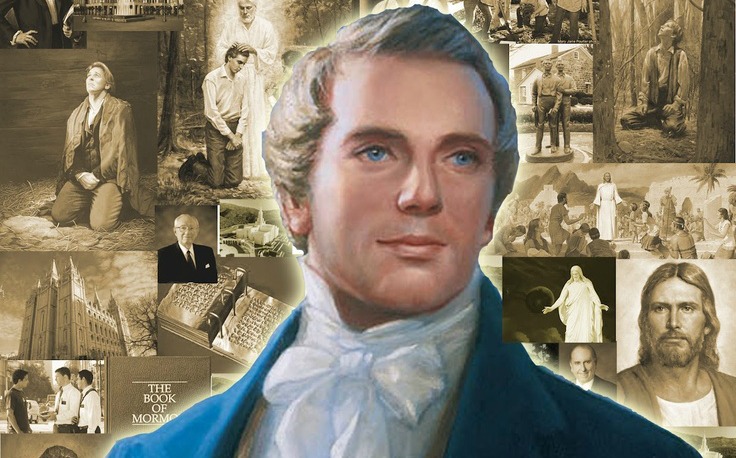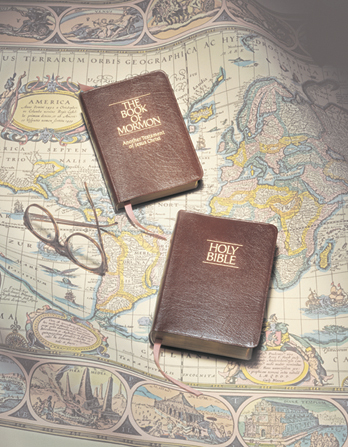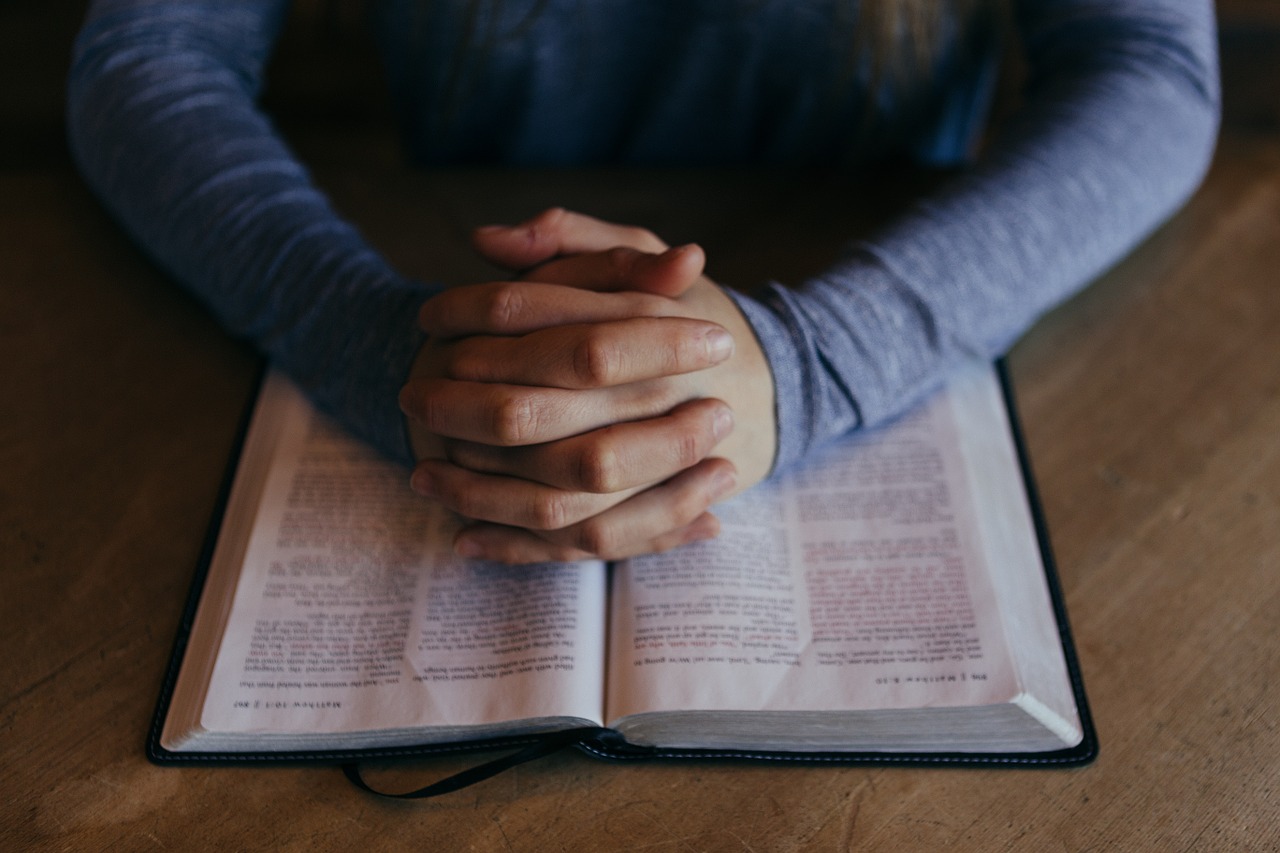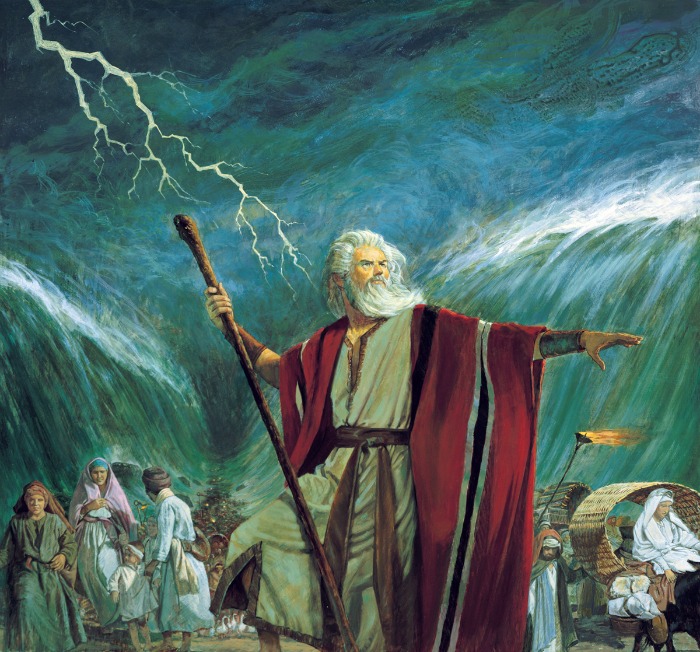8 Things Missionaries Would Tell You If You Let Them Through Your Door
*KNOCK KNOCK KNOCKITY KNOCK*
“Hun, it’s the missionaries—take cover!”
If you’ve ever reacted that way to LDS missionaries knocking at your door, no worries. It’s OK. It can be intimidating (or inconvenient) to spontaneously let two strangers into your home to talk to your family about God, especially in the digital age we live in.
Never fear. What you’re about to read is what the missionaries would most likely teach you if you did let them into your home.
Before they begin
Of course, first the missionaries would introduce themselves and get to know you a bit. They might sing a hymn or say a prayer. They’ll probably ask about your religious background to get a sense of where you’re coming from, and then they’ll get down to business.
https://giphy.com/gifs/nacho-libre-nitty-gritty-incarnacion-3otWpHHFjNQoeGV5MQ
1. Let’s get one thing straight: God loves you; He is your Heavenly Father
They’ll start with the basics. If you’re Christian, you’ll probably already know a lot of what they have to say. For example, God loves you. They’ll want to make that abundantly clear. Everything He does for us, even the stuff that’s tough to swallow, is because He loves us.
God also has a perfected and glorified body of flesh and bones. He has feelings. He’s happy when we’re happy and sad when we’re suffering. He wants us to talk to Him through prayer, and He wants to talk back.
They’ll tell you that our lives have a purpose. Part of that purpose is to show God that we are willing to obey His commandments (for example, the ten commandments). That’s one way we can show our love for God.
Most importantly, they’ll explain that God has provided us a way to return to live with Him after we die. The problem is that sin (disobedience to commandments) prevents us from living in God’s presence. Thankfully, the centerpiece of God’s plan is His firstborn son, Jesus Christ. Through His suffering in the Garden of Gethsemane and His death on the cross, we are able to be cleansed from sin.
That’s really the crux of what the missionaries teach. They teach how to prepare ourselves to return to God’s presence. More on that later.
2. The gospel and families are like PB and J.
The Mormon Church is extremely family-oriented, so that’s what the missionaries will likely talk about next.
They’ll say that the family unit is ordained of God and can continue into eternity. Yeah, even after you die, you can be with your family. That’s what the gospel of Jesus Christ is designed to do.
3. God’s pattern of teaching the world the gospel
So, how does God teach individuals and families about the gospel? We don’t exactly see Him preaching on a street corner. Biblically we learn that God communicates to the world at large through prophets. You’re probably familiar with names like Adam, Noah, and Abraham. They’re all examples of prophets.
God gives prophets the Priesthood, which is power and authority from God to act in His name. That authority is extremely important. It’s essentially the difference between getting pulled over for speeding by the ice-cream man versus a real policeman. One has authority, one does not.
The problem is, not everybody likes to be called to repentance by a prophet. When people completely reject prophetic guidance, they fall into what Mormons call apostasy. When apostasy is widespread, God hits the brakes on prophetic help (not because He wants to, but because the people reject the prophets). But when the people are ready and willing, God always sends another prophet to teach the gospel. Time periods in which a prophet is active are called dispensations (there’s some more Mormon jargon for you).
4. How Jesus Christ fits into the scheme of things

Once the missionaries teach you about prophets and dispensations, they’ve set the stage for the main event: Jesus Christ.
Jesus Christ, in addition to being the Son of God and our Savior, was a prophet sent to open a new dispensation. But His mission was unique. His main objective was to atone (if you’re not familiar with that word, read this) for the sins of the world and overcome physical death. Sin and death—those are the two things that prevent us from returning to God’s presence. Christ was sent to defeat them, giving us the opportunity to overcome them as well.
Christ’s sacrifice in Gethsemane and on the cross enable us to be forgiven of our sins (this is how we overcome that barrier). Obtaining that forgiveness is what the gospel of Jesus Christ is all about. How do we do it? Christ gives us this outline:
- Have faith in Him
- Repent
- Be baptized
- Receive the Holy Ghost
- Endure to the end, trying our best
In a nutshell, this is what Christ taught during His life. He also called 12 apostles, gave them Priesthood authority and organized a church. Unfortunately, the people rejected and killed Christ (an all-too-common occurrence for prophets).
5. What happened after He was crucified?
After Christ’s death, His church began to fall apart. The apostles did their best to keep things together, but many of the doctrines and teachings of the church were ultimately misinterpreted, confused and in some cases lost completely. As wickedness spread, the apostles were persecuted and killed.
As it had been done in the past, God once again pushed pause on Priesthood authority. This began a period of time which Mormons call the Great Apostasy. Remnants of the true gospel still existed, and led to the creation of countless churches, but all of them lacked prophetic guidance and authority to perform necessary ordinances, like baptism.
But, as always, the time came to call another prophet and open a new dispensation.
6. The Restoration of the gospel of Jesus Christ via Joseph Smith

That prophet was named Joseph Smith. He was called as a young boy who lived in a small New York town in the early 1800s. The United States’ unique laws concerning religious liberty provided an environment in which the restoration of the fullness of Christ’s gospel could occur.
Joseph lived in a time of a whole lot of religious excitement. He had several churches he could have chosen to attend as a young teenager, but he was bothered by one question: Which church was preaching the truth?
While reading the Bible and pondering this question, he stumbled upon this scripture:
If any of your lack wisdom, let him ask of God, that giveth to all men liberally, and upbraideth not; and it shall be given him.
So, the 14-year-old boy decided to pray and ask God which church to join. One morning in the Spring of 1820 he entered a grove of trees close to his home. He knelt and began to pray aloud.
At this point the missionaries will almost certainly quote to you Joseph’s experience, in his own words:
I saw a pillar of light exactly over my head, above the brightness of the sun, which descended gradually until it fell upon me. …When the light rested upon me I saw two Personages, whose brightness and glory defy all description, standing above me in the air. One of them spake unto me, calling me by name and said, pointing to the other—This is My Beloved Son. Hear Him!
The missionaries will explain that the people Joseph saw in the first vision were God the Father and His son, Jesus Christ. They answered his question, but not in the way Joseph had expected. They told him that a church containing the fullness of Christ’s gospel did not exist at that time.
God called Joseph Smith to be the new prophet of this last dispensation and to restore the fullness of the gospel of Jesus Christ.
7. The Book of Mormon: Another Testament of Jesus Christ
 At this point in your discussion with the missionaries, you might be giving them a funny look, thinking, “Really? You expect me to just believe that this kid saw God and restored His church?” And that’s a fair question to ask. It is hard to believe at first glance, but thankfully there is a way to know if Joseph was a fraud or not.
At this point in your discussion with the missionaries, you might be giving them a funny look, thinking, “Really? You expect me to just believe that this kid saw God and restored His church?” And that’s a fair question to ask. It is hard to believe at first glance, but thankfully there is a way to know if Joseph was a fraud or not.
As Joseph grew into his prophetic calling, several other angelic visitors came to guide him. One of those visitors led Joseph to a hill near his home. Buried in the hill was a book of ancient scripture, similar to the Bible, but written by ancient American prophets. The book was written on metal sheets in an ancient language.
With divine help, Joseph translated the book into English. We now know it as The Book of Mormon. If what the book says is true, it serves as evidence of his prophetic calling. If the book is not of God, it’s an elaborate hoax.
8. A potentially life-changing invitation
 The missionaries do not want you to just take their word for it. They want you to discover for yourself that everything they’ve talked about is true, starting with The Book of Mormon.
The missionaries do not want you to just take their word for it. They want you to discover for yourself that everything they’ve talked about is true, starting with The Book of Mormon.
How can you know if it’s true? Of course, you’ve got to sincerely read it. The missionaries will give you a free copy (or you can read it online here). Then, like Joseph Smith, they’ll invite you to pray about what you’ve read. They’ll invite you to ask God Himself if what the book says is true. If you’re not familiar with how to pray, check this out.
You probably won’t receive as spectacular an answer as Joseph did. More often than not, God answers our prayers through the Holy Ghost, which communicates with us through our thoughts and feelings. These impressions can be powerful, but they’re usually very gentle. Feelings of peace, warmth, love—these are all from the Holy Ghost.
Joseph’s story is either true or it isn’t. It’s either inspired of God or some other source. He’s either a prophet or a fraud. There’s really no other option. The Book of Mormon is the litmus test. It is the key.
I myself have accepted that invitation to put The Book of Mormon to the test. I’ve read it cover to cover countless times. I’ve prayed over its teachings many, many times and will continue to do so. The answer has always been the same: The book is real, and that changes everything.
But don’t take my word for it. Take the plunge.




